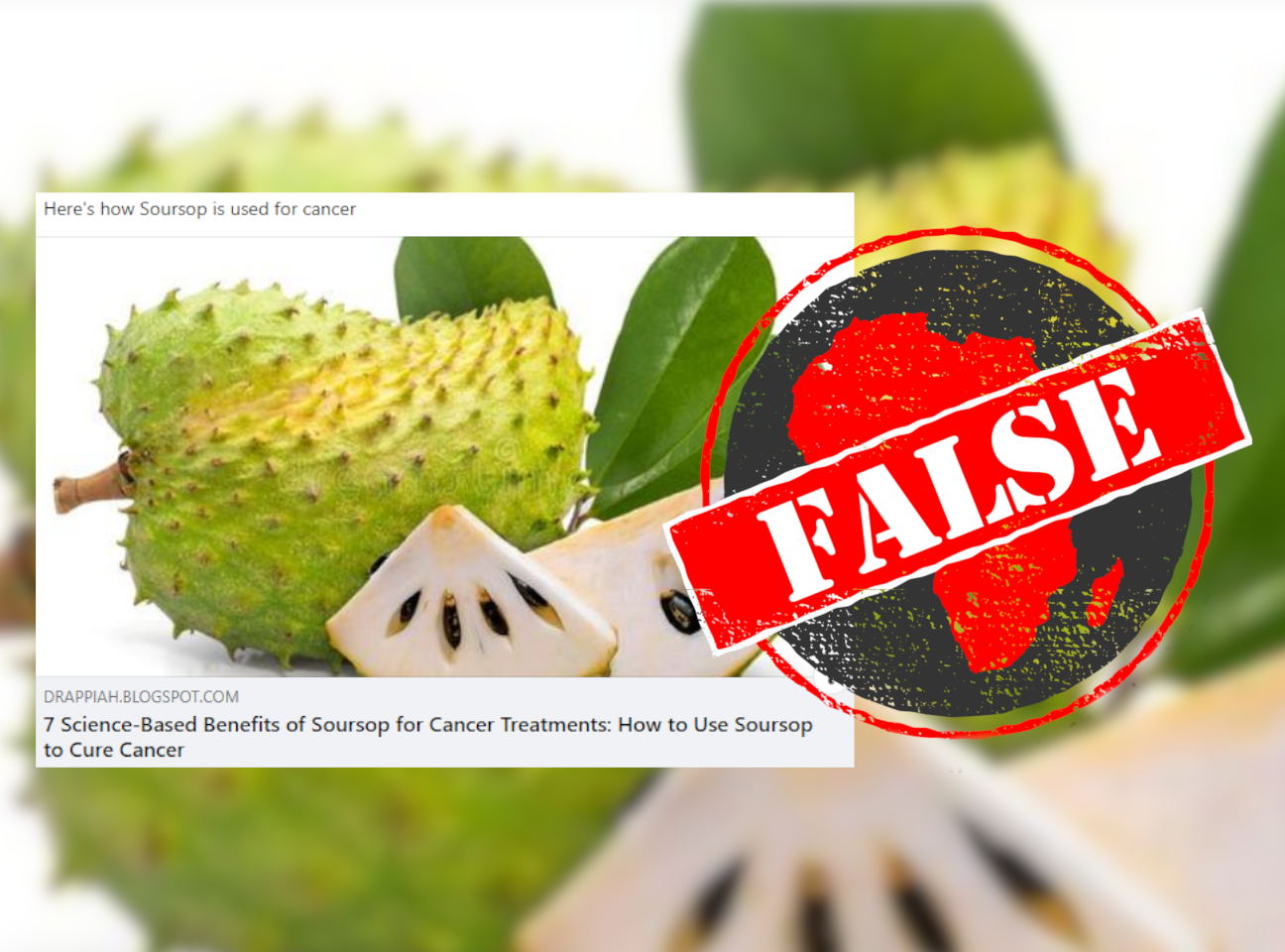IN SHORT: You don’t have to look far on Facebook to find a cancer cure-all. But while research into the tropical fruit soursop is promising, none of it is yet definitive enough to call soursop a “cure” for cancer, and people have been prosecuted for pretending so.
In November 2022, a Facebook group called The Alkaline Momma posted a video claiming that soursop, a tropical fruit usually found in rainforests and of the custard apple family, can treat cancer.
The caption to the video advertises an expensive soursop product sold on the alternative health group’s website. It received almost 6,000 views.
Posts making the same claim are widespread on social media, usually as adverts for products containing soursop. One Facebook post claims that the fruit is “1,000 times more powerful than chemotherapy”.
Such health claims have even earned the fruit its own Facebook group, dedicated to sharing growing information and what it claims is “the scientific research to back its health claims”.
Do these claims hold up to scientific scrutiny? We looked into it.

Promising research … in rats and test tubes
Soursop, also called gaviola, is usually found in tropical rainforests across parts of Africa, Southeast Asia and South America. In traditional medicine, various parts of the plant, including the fruit, have been used to treat a number of diseases. This use has sparked scientific research into the potential health benefits of the plant.
Many studies have been done in vitro, meaning they have looked at the plant’s effects on a specific cell or body tissue, rather than in a human body. In vitro studies are often called “test-tube studies”. Other studies have investigated soursop’s effect on rats and mice.
Some of this research has been promising. Early studies showed possible anti-cancer effects of soursop extracts in pancreatic and breast cancers. More recently, soursop was shown to selectively slow down cancer cell growth.
One 2021 review of the results of multiple studies concluded that ingredients of soursop could have many beneficial effects, including anti-cancer effects. But just like the other studies, these were done in rats, mice and isolated human cells. Scientists often find different results when the same study is done on humans, so these types of studies are looked at as early research that is not conclusive.
Research in humans is rare. One study asked people with breast cancer whether they consumed soursop and some herbs. It found a link between consuming soursop and lower survival rates after a few years. But this doesn’t prove that soursop caused the lower survival rates. We should always remember that correlation does not imply causation.
Warnings and prosecutions for soursop false claims
Soursop is considered generally safe to consume. “It is unlikely that drinks or foods containing graviola could harm you when taken as part of a normal diet,” according to Cancer Research UK. But doctors warn that consuming it might have side effects in some people, and it could interact with medications for high blood pressure and other illnesses.
Because of its popularity as a folk medicine, multiple reputed medical agencies have issued warnings about the plant. In 2017, the US Food and Drug Administration issued a series of warnings to 14 companies making false claims about soursop and other alternative cancer treatments.
Trusted cancer organisations have also refuted these health claims, including Cancer Research UK, Cancer Treatment Centers of America and the Cancer Association of South Africa.
While research in test tubes and rodents is promising, there is no evidence that soursop or any of its ingredients can cure cancer in humans.
Republish our content for free
For publishers: what to do if your post is rated false
A fact-checker has rated your Facebook or Instagram post as “false”, “altered”, “partly false” or “missing context”. This could have serious consequences. What do you do?
Click on our guide for the steps you should follow.
Publishers guideAfrica Check teams up with Facebook
Africa Check is a partner in Meta's third-party fact-checking programme to help stop the spread of false information on social media.
The content we rate as “false” will be downgraded on Facebook and Instagram. This means fewer people will see it.
You can also help identify false information on Facebook. This guide explains how.


Add new comment